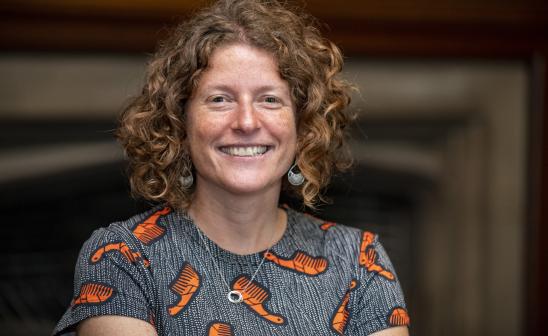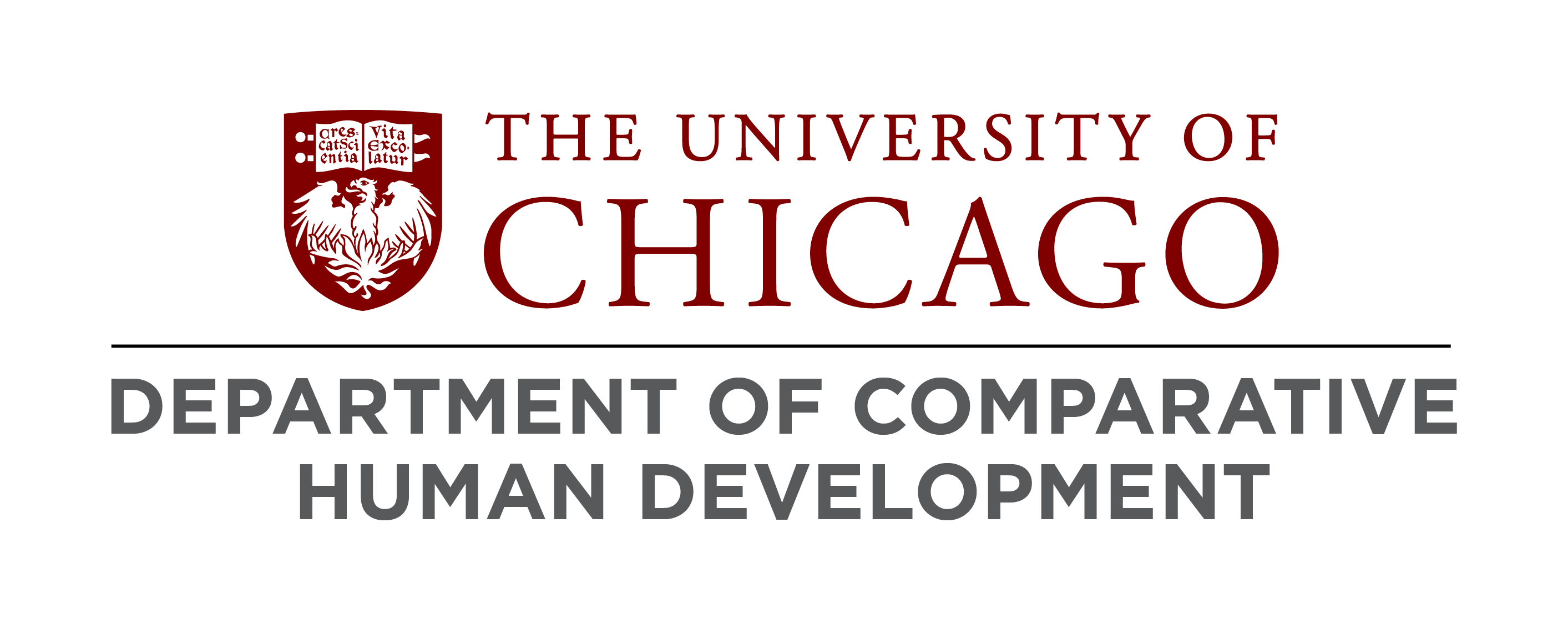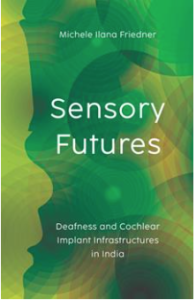Deepening our understanding of deafness, technology, and ‘normalization’

Michele Friedner’s latest book, which received the 2023 Rachel Carson prize from the Society for the Social Studies of Science, is hailed as “nuanced and sophisticated” in its exploration of cochlear implants, deaf communities, and disability politics in India.
By Sarah Stiemer
This year, Michele Friedner, an associate professor in the Department of Comparative Human Development, received the Rachel Carson prize for her latest book, Sensory Futures: Deafness and Cochlear Implant Infrastructures in India. It’s the product of her years of research into deaf communities in India, and her latest effort to better grasp how technological solutions — in this case, both state-sponsored and capitalist — can narrow deaf children’s worlds.
Friedner’s research journey began with her undergraduate degree in religious studies from Brown University — a field she hadn’t expected to find herself in until she took a course on Indian religions. “It made me think about the world in a very different way,” she says, having grown up in an area of Queens, New York, where many of her neighbors were Indian immigrants.
She’d hoped to do a study abroad program in India while an undergrad, but her family had concerns about how the Americans with Disabilities Act would extend overseas and accommodate her as a deaf person. After graduating from Brown, she taught high school for a year and then worked for a non-profit disability rights law firm that focused on large-scale class action lawsuits on behalf of disabled people. She saved up and finally went to India, spending time with activists and visiting deaf organizations, learning about deaf social and political life in India.
Friedner decided to continue on to graduate school at the University of California, Berkeley- University of California, San Francisco, to study medical anthropology. Her dissertation — which also became a book, Valuing Deaf Worlds in India — came from her research between 2007 and 2013 in the Indian state of Karnataka. Its capital, Bangalore, is considered India’s Silicon Valley and she learned that many deaf people get back-office jobs for multinational technology companies, via training from nongovernmental organizations.
“I met a lot of deaf people who were sort of funneled into doing this work, and that wasn't really what they wanted to be doing,” Friedner says. “What they wanted to be doing was promoting Indian Sign Language use and working at deaf schools or starting their own businesses or working in jobs that were focused on foregrounding Indian Sign Language use.” She wanted to learn what it means for young deaf adults to be funneled into these jobs, and where else they look for what they call deaf development or deaf futures that feature Indian sign language, deaf social practices, and social life.
When she returned to India in 2016, she was invited to visit an institute that had both college courses for signing adults, as well as early intervention programs for very small deaf children who were getting cochlear implants and learning how to listen and speak. Friedner noticed a tension in the institute between the young adults who wanted to meet the children and teach them sign language — welcoming them to deaf life — and the children’s parents who were told explicitly by audiologists and speech and language therapists that their children should not be exposed to sign language.
“That's what we see around the world, not just in India, where parents who have kids with implants or even who just use hearing aids are told, ‘Don't tell your children about sign language, don't sign, because you want them to focus on audition.’”
There are both central government and state government programs that offer cochlear implants for young children in India. Friedner focused her research on the central government program, which offers the implants to low-income families. She also looked at the growth of a private cochlear implant market, from which wealthy families purchased implants, as a comparison of what the government programs were providing to deaf children. Her study of the program, the market, and the individuals involved became the book Sensory Futures.
Friedner says one of the biggest takeaways from her research was the sense that, because of cochlear implantation, deaf children can become “normal.” But normalization, she says, is a project of narrowing in terms of communication and in terms of sensing because it focuses on audition.
“When deaf children get implanted, they're told that they need to become auditory people — ironically, more auditorily dependent than non-deaf, non-disabled people,” Friedner says. “They're told that they're not allowed to sign, they're not allowed to gesture, that they're not allowed to use any of these other skills and repertoires that many of us — deaf and non-deaf — take for granted.”
Families of deaf children, especially their mothers, are expected to change the way they naturally communicate with the children. Mothers are used to doing what comes naturally: engaging with their children eye to eye and face to face, but mothers of children with cochlear implants are told to instead speak to them nonstop. “I saw mothers being asked to, encouraged to, and pushed to change their practices of mothering, to practices that really focus on speech,” Friedner says.
Her book also highlights the complex dependencies that children and their families enter into with the device manufacturers, because the government provides the devices initially and with two years of device support. But the devices break, the batteries die, parts need to be replaced, and families are eventually on their own to cover the costs.
“People more and more are talking about it,” Friedner says. “But the state isn't talking about it. And surgeons aren't talking about it and audiologists aren't talking about this very much. It's a big deal because a lot of children are no longer using their devices because the families can't afford to maintain them.”
The process of using the devices on and off, as some children in India do because of cost constraints, can be extremely distressing. It’s also problematic because the families have been told not to introduce Indian Sign Language or use other visual communications. “When devices break, when families can't afford upgrades, they aren't told about these other options,” Friedner says.
The 2023 Rachel Carson prize award committee unanimously agreed that Friedner’s book was exemplary on all fronts considered: overall scholarly qualities and contributions to opening new avenues for public debate and social change. “The rich and rigorous analysis in Sensory Futures speaks to a long history in STS (Science and Technology Studies) of disrupting our understanding of bodies, technology, and knowledge,” the committee said.
Friedner says she wrote the book as a science and technology studies ethnography, for anthropology, STS, disability studies, and South Asian studies scholars. But beyond that, she also wanted it to be available to speech and language pathologists, surgeons, and audiologists, so the book is open access. She says India isn’t unique in its efforts: Developing countries across the globe often provide children with a basic cochlear implant processor when they start such programs, and research shows these don’t perform as well and it's harder for children to work with them. Children receive these implants, Friedner says, ostensibly to make them “normal,” but then they aren’t receiving every possible resource — from device upgrades to sign language education.
“It’s really important to me to look at these global resonances and to think about the role of states and corporations as these institutions are spearheading the growth of the cochlear implant market. Deaf children and their families, many of whom are working so incredibly hard to do the best they can, must have access to the latest technology for the child’s lifetime. It is a matter of sensory — and social — justice.”
 THE UNIVERSITY OF CHICAGO
THE UNIVERSITY OF CHICAGO


